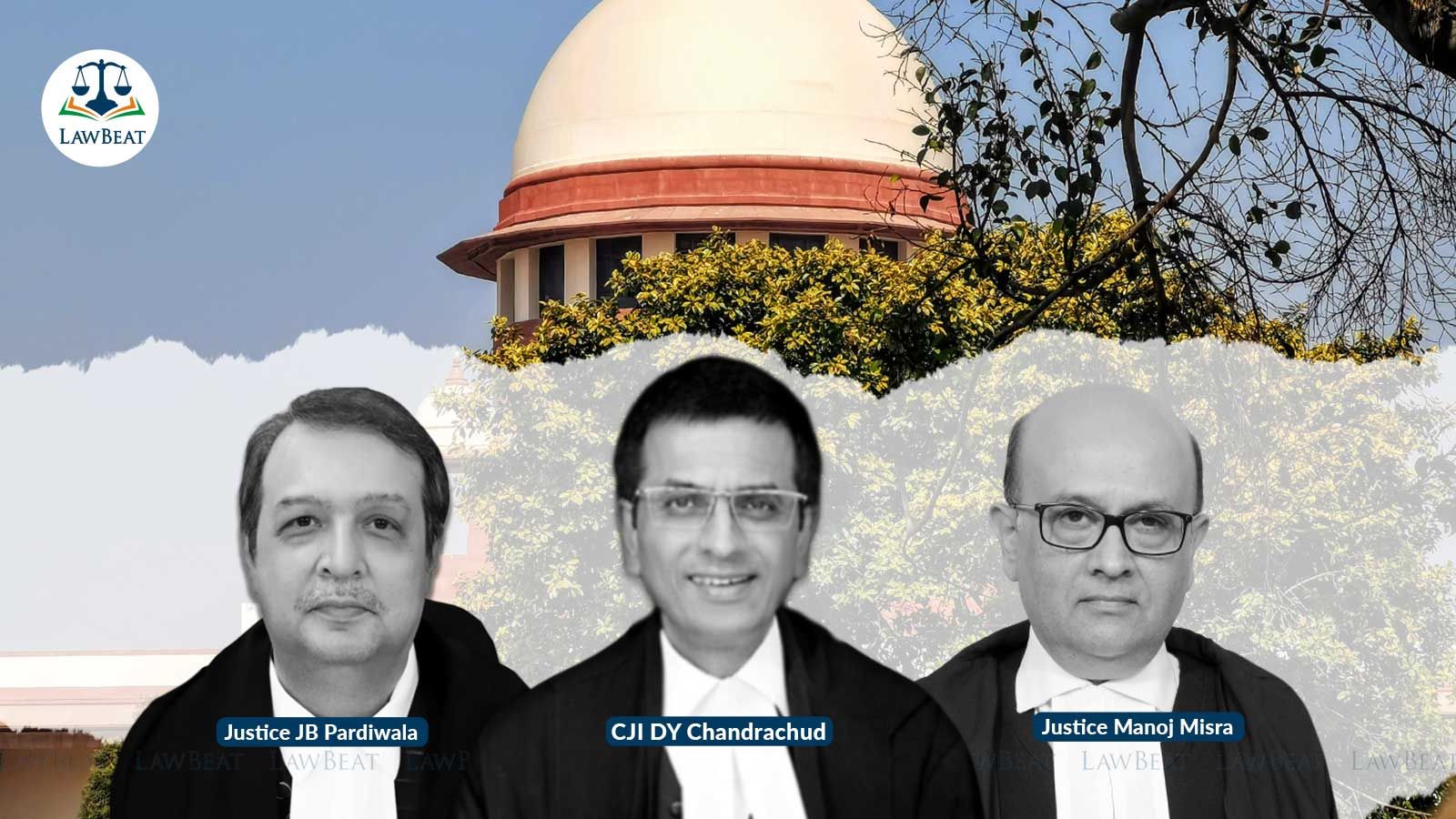Arbitral Tribunal Should Decide Non-Signatory Party’s Status in Agreements: SC

Court said that the intention of the parties to be bound by an arbitration agreement can be gauged from the circumstances that surround the participation of the non-signatory party in the negotiation, performance, and termination of the underlying contract containing such an agreement
The Supreme Court has said that where complexity is involved in the determination of the question of whether a non-signatory party is a veritable party to the arbitration agreement or not, it would be appropriate for the arbitral tribunal to take a call on the issue after taking into consideration the evidence that may be adduced by the parties before it.
A bench of Chief Justice of India D Y Chandrachud and Justices J B Pardiwala and Manoj Misra said the definition of “parties” under Section 2(1)(h) read with Section 7 of the Arbitration and Conciliation Act, 1996 included both the signatory as well as non-signatory parties.
"Persons or entities who have not formally signed the arbitration agreement or the underlying contract containing the arbitration agreement may also intend to be bound by the terms of the agreement. Further, the requirement of a written agreement under Section 7 does not exclude the possibility of binding non-signatory parties if there is a defined legal relationship between the signatory and non-signatory parties. Therefore, the issue as to who is a 'party' to an arbitration agreement is primarily an issue of consent. Actions or conduct could be an indicator of the consent of a party to be bound by the arbitration agreement," the bench said.
The court pointed out that the fact that a non-signatory did not put pen to paper may be an indicator of its intention to not assume any rights, responsibilities or obligations under the arbitration agreement.
"However, the courts and tribunals should not adopt a conservative approach to exclude all persons or entities who intended to be bound by the underlying contract containing the arbitration agreement through their conduct and their relationship with the signatory parties," it said.
The court said that the mutual intent of the parties, relationship of a non-signatory with a signatory, commonality of the subject matter, composite nature of the transactions and performance of the contract are all factors that signify the intention of the non-signatory to be bound by the arbitration agreement.
"An important factor to be considered by the Courts and Tribunals is the participation of the non-signatory in the performance of the underlying contract," it said.
The court further said that the intention of the parties to be bound by an arbitration agreement can be gauged from the circumstances that surround the participation of the non-signatory party in the negotiation, performance, and termination of the underlying contract containing such an agreement.
Further, when the conduct of the non-signatory is in harmony with the conduct of the others, it might lead the other party or parties to legitimately believe that the non-signatory was a veritable party to the contract containing the arbitration agreement, it said.
However, in order to infer consent of the non-signatory party, their involvement in the negotiation or performance of the contract must be positive, direct and substantial and not be merely incidental. Thus, the conduct of the non-signatory party along with the other attending circumstances may lead the referral court to draw a legitimate inference that it is a veritable party to the arbitration agreement. But under under Section 11(6) of the Act, 1996 , court should not conduct a mini trial and delve into contested or disputed questions of fact, the bench said.
The court was dealing with a petition filed by one Ajay Madhusudan Patel and others seeking the appointment of a sole arbitrator to adjudicate the disputes between the petitioners and the respondents Jyotrindra S Patel and others in terms of Clauses 7.2 and 7.3 respectively of the Family Arrangement Agreement.
A question arose whether the SRG Group being a non signatory to the FAA, could be referred to arbitration.
The court, however, said that a detailed examination of numerous disputed questions of fact were imperative in deciding whether the SRG Group participated in the negotiation and performance of the underlying contract and could be bound by the arbitration agreement.
"At the cost of repetition, we may state that under our limited jurisdiction afforded under Section 11(6) of the Act, 1996 we should not conduct a mini trial and delve into contested or disputed questions of fact," the bench said.
The bench opined that the nomenclature of the agreement was not determinative of its character. Therefore, the fact that the underlying contract was called the “Family Arrangement Agreement” by itself might not preclude the impleadment of the SRG Group in arbitration, the court added.
"Once the arbitral tribunal is constituted, it shall be open for the respondents to raise all the available objections in law, and it is only after (and if) the preliminary objections are rejected that the tribunal shall proceed to adjudicate the claims of the petitioners," the bench said.
It appointed Justice Akil Quereshi, former Chief Justice of the Rajasthan High Court as sole arbitrator, while clarifying that all the rights and contentions of the parties are left open for adjudication by him.
Case Title: Ajay Madhusudan Patel & Ors Vs Jyotrindra S Patel & Ors
